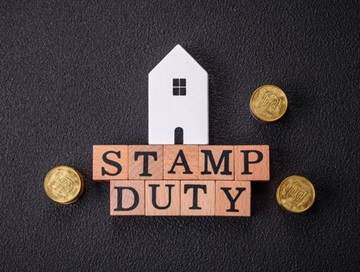There are many things to consider and take care of when starting a rental tenancy in Western Australia.
As you are entering into a legal contract, it's vital to know exactly what you're signing, as well as your rights and responsibilities during the tenancy.
Costs
Before actively starting your rental hunt, think seriously about what you can afford. Some financial planners suggest that your rental costs should not exceed 30 per cent of your income after taxes.
A trap for some renters is they fail to adequately consider all upfront costs.
As an example, if you were looking at renting a property for $600 a week, the upfront costs you'd be likely to pay are:
- A security bond, which is usually four weeks rent ($2,400).
- Rent in advance, which is usually two weeks rent ($1,200).
- Moving costs, which is dependent on how much you are moving and the distance the items need to travel.
- If you own a pet and it has been approved by the owner to live in the rental, then you might be required to pay a pet bond ($260 is the maximum amount that can be charged).
Paperwork
Renting a home involves a fair bit of paperwork that you'll be required to fill out prior to moving in.
These forms are designed to protect the rights of both you and the owner and to ensure you're both aware of what your responsibilities are during the life of the contract.
Application forms and options fees
It's not uncommon that an owner will request you complete an application form so they can formally assess your eligibility.
Information you'll be asked to provide is:
- income
- details of previous rental
- history employment
- references
This application process may also include an option fee. Option fees are sometimes required, with the cost of this fee usually around $50 to $100. The option fee provides you with the right (but not the obligation) to enter into the lease after the application has been approved.
Tenancy agreements
The tenancy agreement is a vital document between you and the owner.
Its purpose is to clearly establish the agreed terms and conditions between both parties from the outset.
This agreement includes:
- the address of the property
- the name and addresses of yourself and the owner or property manager
- whether the agreement is fixed or periodic
- rent requirements ie. amount, frequency, method of payment and rent reviews
- special conditions
- strata by-laws that may restrict your conduct on common land
- a summary of key residential tenancy laws
Property Condition Report
The property condition report (PCR) must be prepared by the property manager. You will receive two copies of this report within seven days of moving in.
This report details the condition of the home on a room-by-room basis and notes all contents within the property at the start of the tenancy. As the tenant, you have the right to dispute anything that has been noted within seven days after receiving the initial report.
A PCR will be prepared at the end of the tenancy. The purpose of the PCRs is to assist in the resolution of any dispute over the condition of the premises. These reports may be used in a court hearing if the owner is claiming any alleged damage to the premises.
You should:
- Check the premises for cleanliness and maintenance issues.
- Check the security of locks, doors, windows and fences.
- Check the description of the condition of the garden and lawn.
- Check the number and type of garden sprinklers and if they work.
- Check the condition of the reticulation and bore and if they work.
- If there is a swimming pool, check everything is in working order, note the condition and list all equipment.
- Take photographs or video showing the condition of certain areas making sure to record the date.
- Check if the owner intends to fix any issues you discover and have this written into the agreement.
If you do not return an altered copy within seven days, it is taken that you agree with everything that has been noted down on the report.
Make sure you keep a copy of the report somewhere safe for your reference because this is the condition the owner will expect the premises to be in at the end of the lease, with the exception of fair wear and tear.
Rental increases
From 29 July 2024, rent can only be increased once every 12 months. This applies to both periodic and fixed-term leases. You must be given 60 days’ notice, in writing, of the increase.


.tmb-rcarousel.jpg?sfvrsn=24ed8b20_1)







.tmb-rcarousel.png?sfvrsn=3619a769_1)